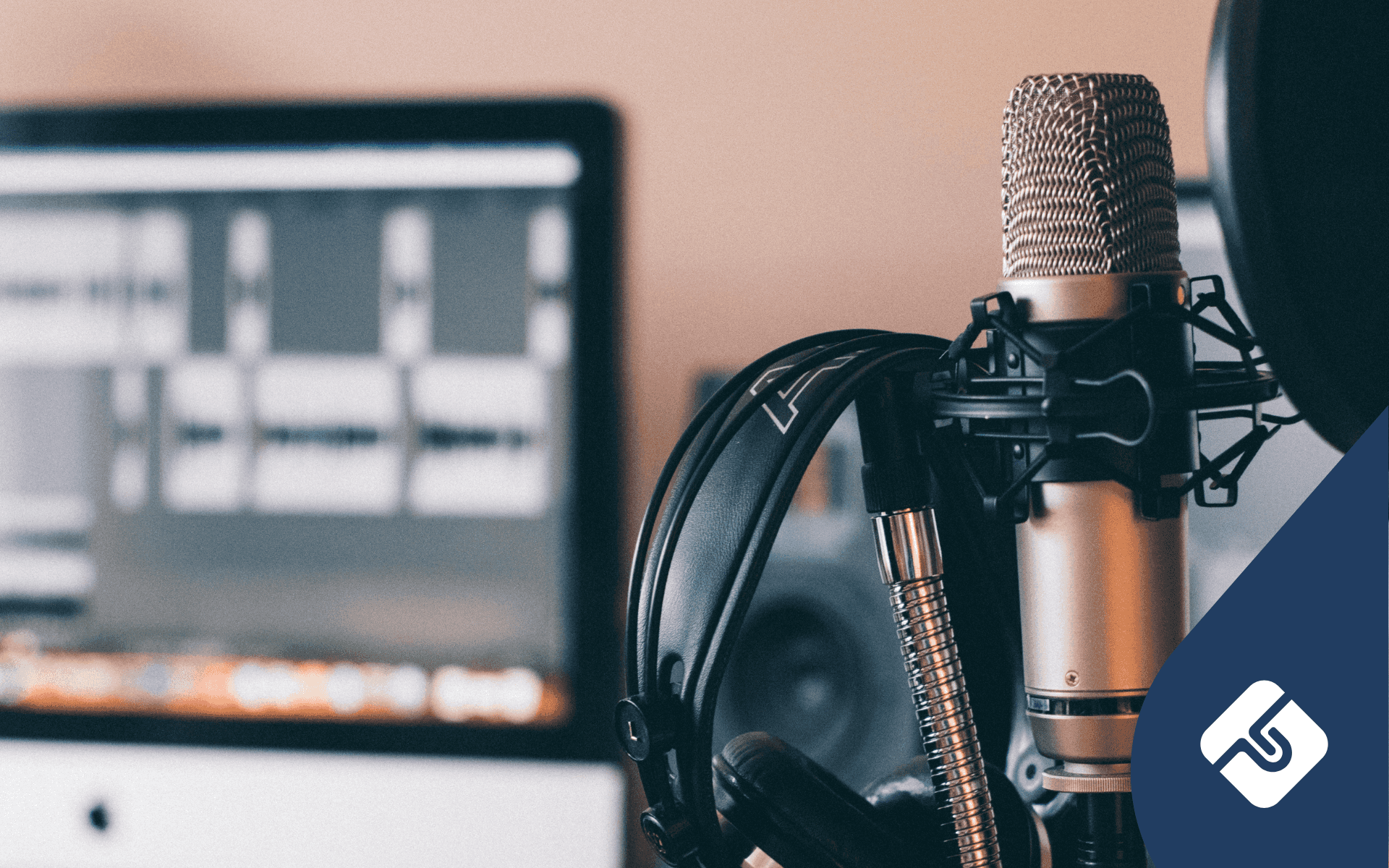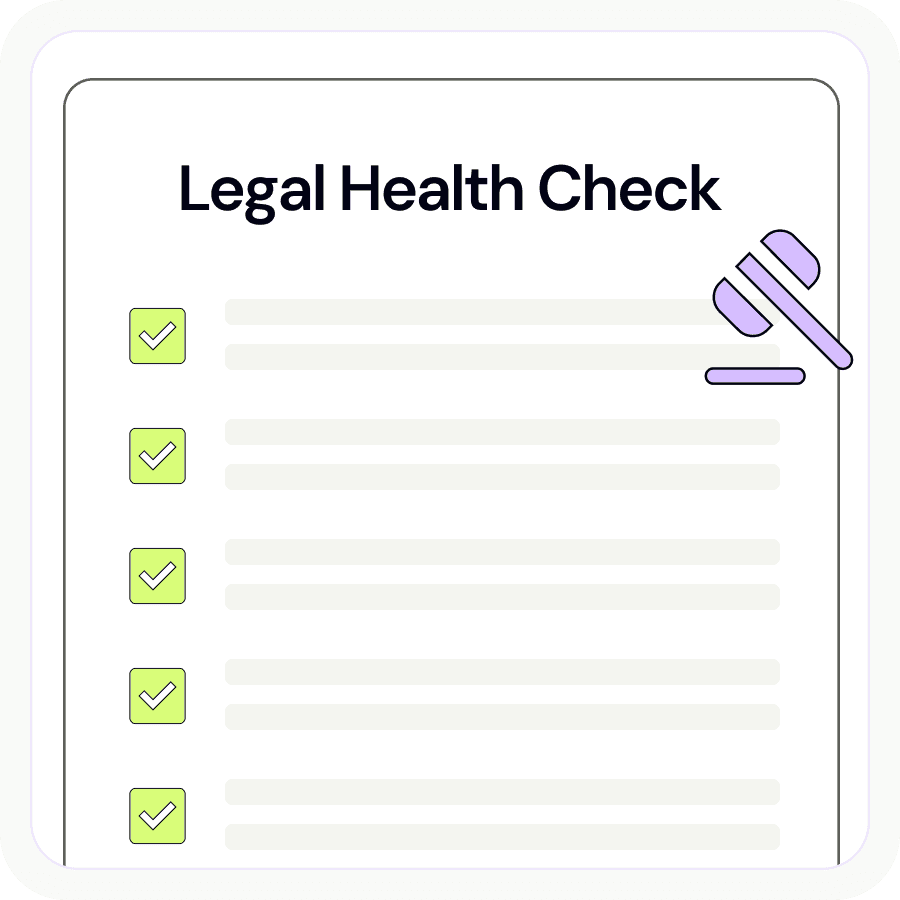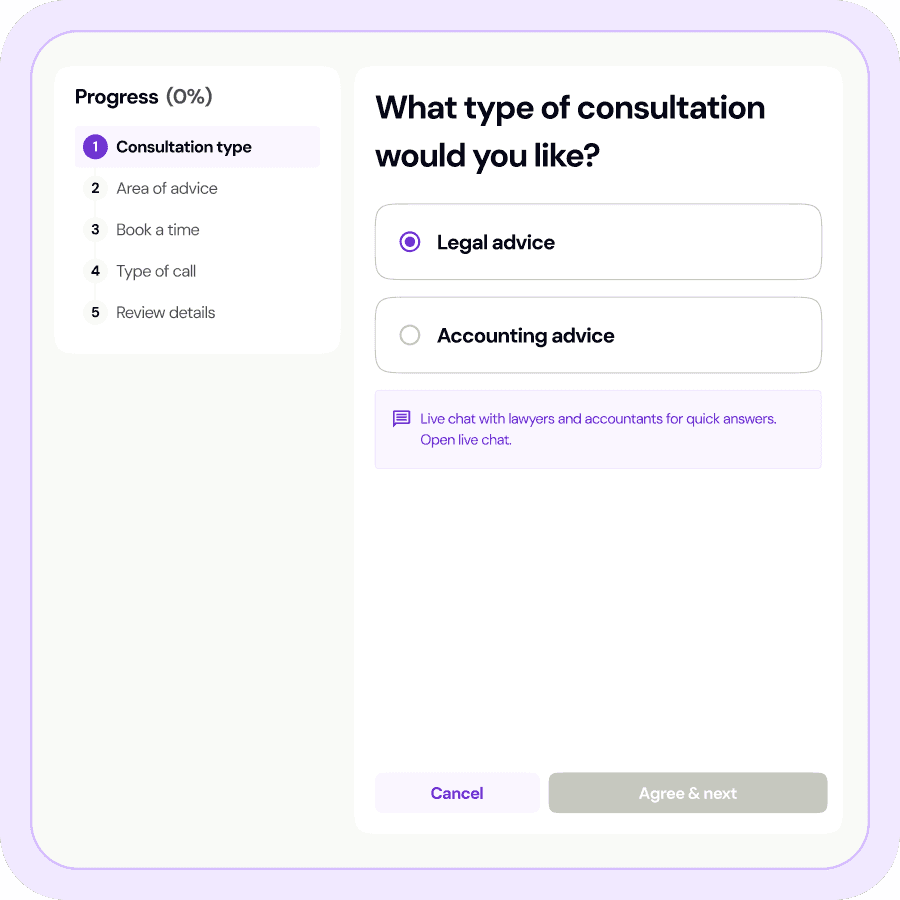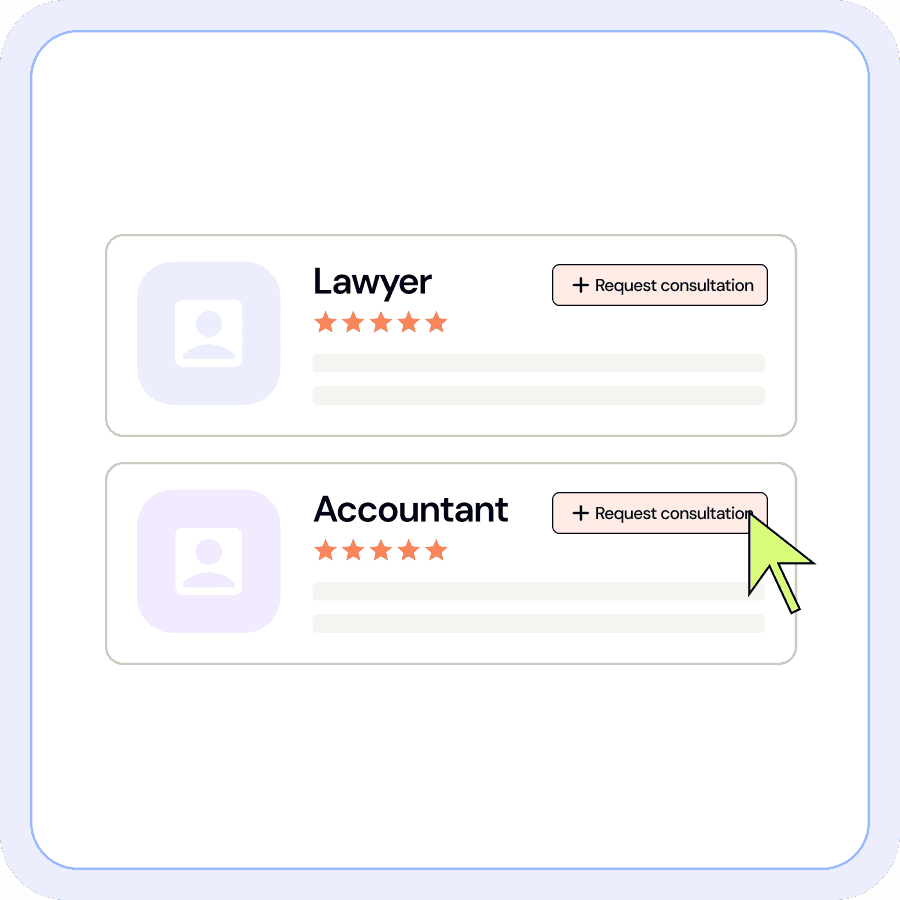If you’re wondering how to start a podcast business from a legal perspective, you’re not alone. The industry is booming, and more creators than ever are turning their passion into profit. But what are the legal risks and business responsibilities?
This guide will break down, step by step, exactly what you need to do to turn your podcast into a legally compliant business.
Table of Contents
Podcasts are booming — but is yours a business or a hobby?
Podcasting in Australia is experiencing explosive growth, with over 9.6 million Australians now tuning in regularly and revenue from streaming and advertising hitting unprecedented highs. For many, podcasting starts as a creative outlet or a way to connect with like-minded listeners. But as your audience grows, sponsorships, merchandise, and paid content can quickly transform a hobby into a business.
This evolution brings legal responsibilities. Many podcasters overlook essential legal steps, leaving themselves exposed to copyright claims, brand disputes, or fines for unregistered business activities.
The line between hobby and business isn’t always clear, but it’s crucial to get your legal foundations right from the start. This guide will show you how.
Step 1 — Decide if your podcast is a business and choose a structure
If you’re creating content purely for fun, with no intention to make money, you may be operating as a hobbyist. But as soon as you start monetising through ads, sponsorships, merchandise, or paid subscriptions, you’re running a business in the eyes of the law.
Once that’s the case, you need to choose a business structure to operate your new Australian company.
- Sole Trader: This is the easiest to set up and suitable for solo podcasters. That said, you’ll still need to register for an Australian Business Number (ABN) and will be personally liable for any debts or legal issues.
- Partnership: If you have co-hosts or collaborators, a partnership clarifies profit-sharing and legal responsibilities.
- Company: Registering a company offers limited liability protection and is suitable for those planning to grow, hire staff, or attract investment. Companies must comply with stricter reporting and tax obligations.
Here’s a quick video that will help you decide the proper structure for your podcast
Embed [https://www.youtube.com/watch?v=y62SkslUuLY&t=16s]
In addition to deciding on a business structure, consider the following obligations.
- Income and tax: No matter how you run your business, you’ll need to register for an ABN. Plus, if your annual turnover exceeds $75,000, you must also register for Goods and Services Tax (GST).
- Intellectual property (IP) ownership: In a sole trader setup, you own the IP. In partnerships or companies, clarify IP ownership in writing to avoid disputes.
- Legal responsibilities: Additionally, each structure has different obligations for record-keeping, reporting, and liability.
Tip: Even if you start as a hobby, consider registering your business early to avoid complications as you grow.
Step 2 — Protect your podcast name and brand
Your podcast name is your identity. Protecting it early prevents costly disputes down the track.
- Check name availability: Before launching, search the Australian Business Register and Australian Securities and Investments Commission (ASIC) to ensure your chosen name hasn’t already been taken.
- Register your business name: If you’re operating under a name other than your own, register the business name with ASIC.
- Secure your domain: Register a matching website domain to protect your online presence.
- Trademark your podcast name and logo: A registered trademark gives you exclusive rights to use your name and logo in Australia. This is vital if you plan to grow, sell merchandise, or expand internationally.
Remember that trademarking protects your brand from copycats and gives you legal recourse if someone uses a similar name. You can check trademark availability via the Australian Trade Mark Search.
Step 3 — Understand your rights around music, co-hosts, and guest content
Copyright is one of the biggest legal risks for podcasters. Using music, sound effects, or other third-party content without permission can result in takedown notices or legal action.
- Music: Only use royalty-free or properly licensed music. Never use commercial tracks without a licence, even for intros or outros.
- Co-hosts and collaborators: Clarify in writing who owns the podcast content, how revenue is shared, and what happens if someone leaves. A Podcast Collaboration Agreement is strongly recommended.
- Guest interviews: Without a signed release, guests may later object to their appearance or how their content is used. Always get written consent.
- Copyright and moral rights: Under Australian law, creators automatically own the copyright in their original work, and moral rights protect their right to be credited and not have their work treated in a derogatory way.
Make sure to have legal paperwork in place to document any agreements, which can protect you in court should the necessity arise.
Step 4 — Don’t forget your guest release and sponsorship agreements
As your podcast grows, you’ll likely invite guests to share their expertise and attract sponsors to monetise your content. Both opportunities are exciting, but they also introduce potential legal pitfalls if not handled correctly.
Securing the proper agreements is crucial for protecting your rights, managing expectations, and avoiding disputes down the track. Namely, you will need guest release forms and sponsorship agreements.
Audio release for media
Inviting guests to your podcast is a fantastic way to add credibility, variety, and fresh perspectives. However, without the necessary permissions are obtained for the use of a person’s voice or other sounds in an audio production, it’s all meaningless as guests could object to how their interview is used or request content be taken down after it’s published.
An audio release for media form is a straightforward legal document that permits you to:
- Record the guest’s voice (and video, if applicable).
- Edit and publish the interview in any format.
- Promote, advertise, and distribute the episode across platforms.
- Use the guest’s name, likeness, and biography in your marketing materials.
Having this form signed before recording ensures that you own the rights to the content and can use it as you see fit. It also makes your podcast look more professional and protects you from legal claims if a guest later changes their mind.
Sponsorship agreements
Sponsorship is one of the most lucrative ways to monetise your podcast, but it’s also an area ripe for misunderstandings if not properly documented. A Sponsorship Agreement is a written contract between you and the sponsor that clearly outlines the terms of your partnership. It includes the following details.
- Ad placement and frequency: Specify where and how often sponsor messages will appear (e.g., pre-roll, mid-roll, end-roll, or integrated content).
- Payment terms: Detail the compensation structure — whether it’s a flat fee, per-episode rate, or based on downloads/listens.
- Content approval rights: Clarify whether the sponsor has the right to review and approve ad scripts or episode content.
- Duration and exclusivity: Define the length of the agreement and whether the sponsor has exclusive rights within their industry.
- Intellectual property rights: Address who owns the rights to any custom ads or branded content created for the campaign.
A clear, comprehensive sponsorship agreement protects both parties, ensures everyone is on the same page, and helps maintain a positive, professional relationship.
Step 5 — Add disclaimers and privacy protections
As your podcast grows, so does your responsibility to protect yourself and your listeners. Two critical legal safeguards every Australian podcaster should implement are disclaimers and privacy policies.
Disclaimers: Shielding yourself from liability
If your podcast discusses sensitive topics — such as health, legal, financial, or other forms of advice — Australian law and best practice strongly recommend including a clear disclaimer.
Disclaimers make it clear to listeners that your content is for informational purposes only and should not be taken as professional advice. Without one, you risk listeners relying on your content and seeking compensation if things go wrong.
A well-crafted disclaimer should be included both verbally in your episodes and in writing on your podcast website. This dual approach ensures that all listeners are made aware of your intent, regardless of how they access your content.
Here is what a generic disclaimer might look like: “The information in this podcast is for general informational purposes only and does not constitute professional advice. Please consult a qualified professional before making decisions based on this content.”
Privacy Policy: Protecting listener data and staying compliant
Suppose your podcast collects any personal information, such as names, email addresses, or analytics data, through your website, mailing list, or surveys. In that case, you are legally required to have a privacy policy under the Privacy Act 1988 (Cth). This applies whether your podcast is a hobby or a commercial venture, regardless of your audience size.
A privacy policy must clearly explain:
- What personal data you collect and why
- How you store and protect that data
- How listeners can access, correct, or delete their information
- Whether you share data with third parties
- How users can opt out of communications
Failing to provide a compliant privacy policy can lead to fines, legal action, or reputational damage.
Step 6 — What does it really cost to start a podcast in Australia?
While not expensive, you cannot start a podcast for free. So, how much does it cost to start a podcast for beginners? Let’s break down some of the potential costs.
- Microphone and recording equipment: $100–$500+
- Audio editing software: Free to $50/month
- Podcast hosting: $10–$30/month
- Website/domain: $20–$100/year
Hidden but essential legal costs:
- Business name registration: ~$44/year plus any legal fees
- Trademark registration: From $250 per class
- Legal agreements (collaboration, guest, sponsorship): Varies; you can access templates for free, on a subscription basis, or per document. Alternatively, you can pay a lawyer to manage legalities for you.
- Privacy policy and disclaimers: Free templates exist, but custom legal advice is recommended
While it’s tempting to start for free, skipping legal steps can cost you much more in the long run through disputes, fines, or lost branding opportunities. Lawpath can help you start and run your business legally, streamlining everything from business name registration to putting robust legal agreements in place.
Final checklist before you launch
- Register your business structure (sole trader, partnership, or company).
- Lock in a podcast name and matching domain.
- Check and register trademark availability.
- Create copyright-safe content (music, audio, images).
- Get guest release and sponsorship agreements in place.
- Add disclaimers and a privacy policy to your website.
FAQs
Can I get sued for using music in my podcast?
Yes. Always use royalty-free or properly licensed music. Using commercial tracks without permission can result in takedown notices, copyright claims, or legal action.
Should I trademark my podcast name?
If you want to grow or protect your brand, trademarking is strongly recommended. It gives you exclusive rights and legal recourse against copycats.
Launching a compliant podcast business
Launching a podcast business in Australia is an exciting journey, but it comes with legal responsibilities. By choosing the right business structure, protecting your brand, managing copyright, and putting the right agreements in place, you’ll avoid costly mistakes and set your show up for long-term success.
Don’t cut corners on legal protection. Platforms like Lawpath can help you with name searches, trademark registration, and contract templates to make the process easier. You can also tap into our extensive collection of professional legal templates to get started without breaking the bank.










